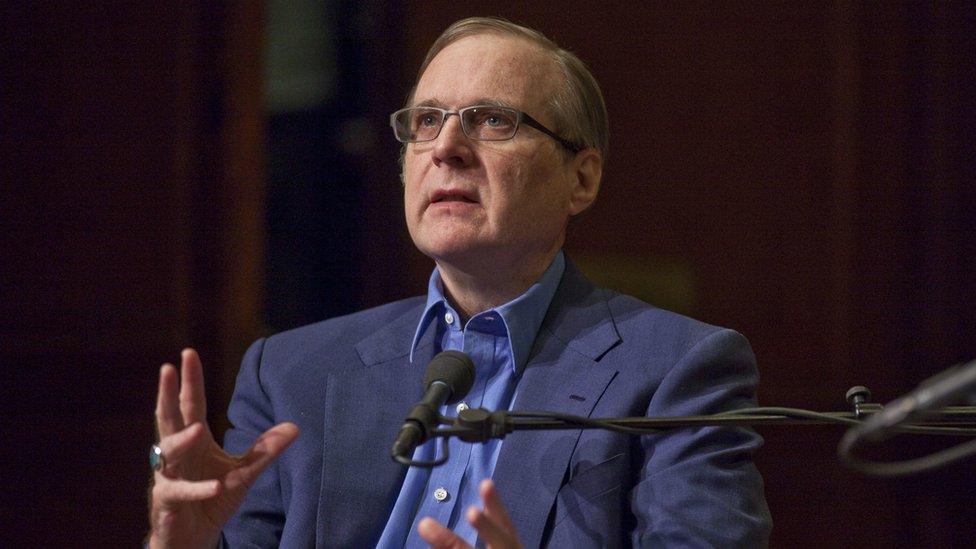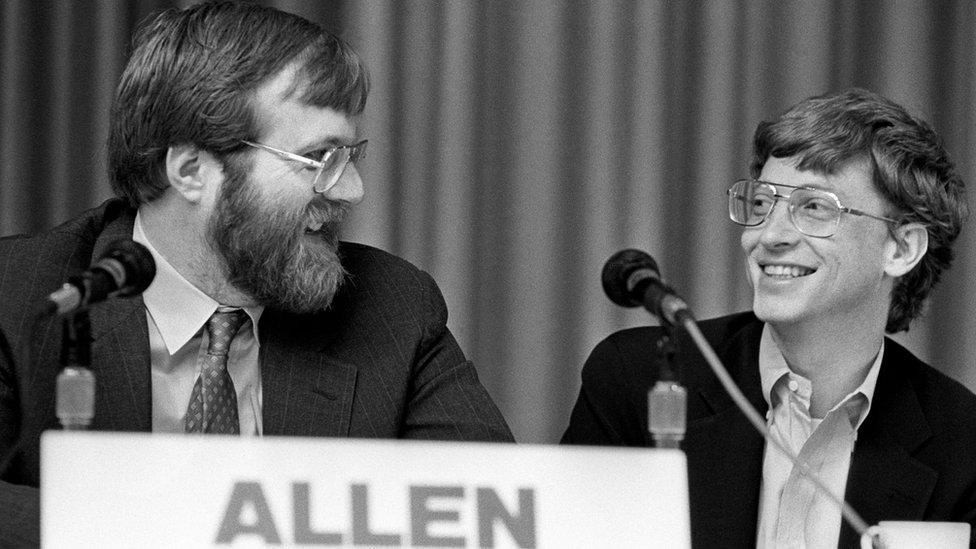Paul Allen: Microsoft co-founder and billionaire dies aged 65
- Published

Allen announced his diagnosis earlier this month
Paul Allen, who co-founded Microsoft, has died aged 65 from complications of non-Hodgkin's lymphoma.
He had revealed the disease's return only two weeks ago, after previously being treated for it in 2009.
He had said he and his doctors were "optimistic" about treatment.
His Microsoft co-founder Bill Gates said: "I am heartbroken by the passing of one of my oldest and dearest friends... Personal computing would not have existed without him."
In a statement confirming his death on Monday afternoon, his sister Jody described the businessman as a "remarkable individual on every level".
"Paul's family and friends were blessed to experience his wit, warmth, his generosity and deep concern. For all the demands on his schedule, there was always time for family and friends," the statement said.
"At this time of loss and grief for us - and so many others - we are profoundly grateful for the care and concern he demonstrated every day."
The businessman made his fortune alongside school friend Bill Gates, after they co-founded technology giant Microsoft in 1975.
"From our early days together at Lakeside School, through our partnership in the creation of Microsoft, to some of our joint philanthropic projects over the years, Paul was a true partner and dear friend," said Mr Gates.
"He deserved much more time, but his contributions to the world of technology and philanthropy will live on for generations to come. I will miss him tremendously."

He left the company in 1983 following his first diagnosis of the blood cancer Hodgkin's disease, but recovered to become a successful venture capitalist with his media and communications investment firm, Vulcan that he set up in 1986.

Analysis
Dave Lee, BBC North America technology reporter, San Francisco
I've spent Monday at the 25th anniversary of technology magazine Wired, an event celebrating the history of not just the magazine, but technology itself.
Paul Allen, who will be deeply missed by those here, was one of the industry's giants. His name would have been on Wired's pages many, many times.
Mr Allen had beaten cancer before, and he had appeared confident that he could beat it again. Those close to him said he was active, on emails at least, until the very end - offering advice, strategy and insight to the many, many people who looked to him for support.
Mr Allen didn't always have a great relationship with his co-founder, Bill Gates. The pair had a well-publicised row over stock ownership. But they shared an awful lot in common, first as children learning programming, and then as adults donating billions to philanthropic efforts.

Mr Allen's investment firm confirmed news of his death on Monday evening.
"Millions of people were touched by his generosity, his persistence in pursuit of a better world, and his drive to accomplish as much as he could with the time and resources at his disposal," Vulcan CEO Bill Hilf said in a statement.
He is estimated to have donated more than $2bn to philanthropy throughout his life, external including science, education and wildlife conservation causes, the Associated Press report.
He was also an avid sports fan, owning both the Portland Trail Blazers basketball team and Seattle Seahawks NFL team, who won the US Superbowl in 2013.
In 2010 he pledged to give the majority of his fortune to charitable causes after his death.